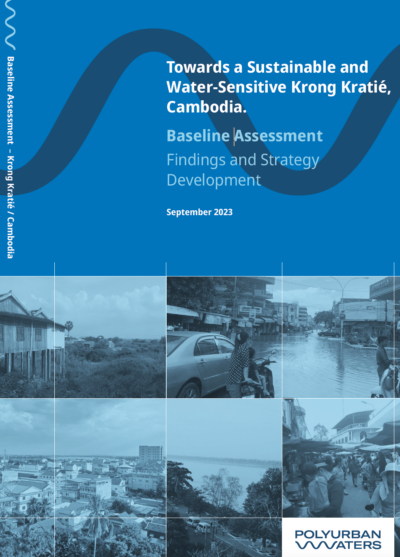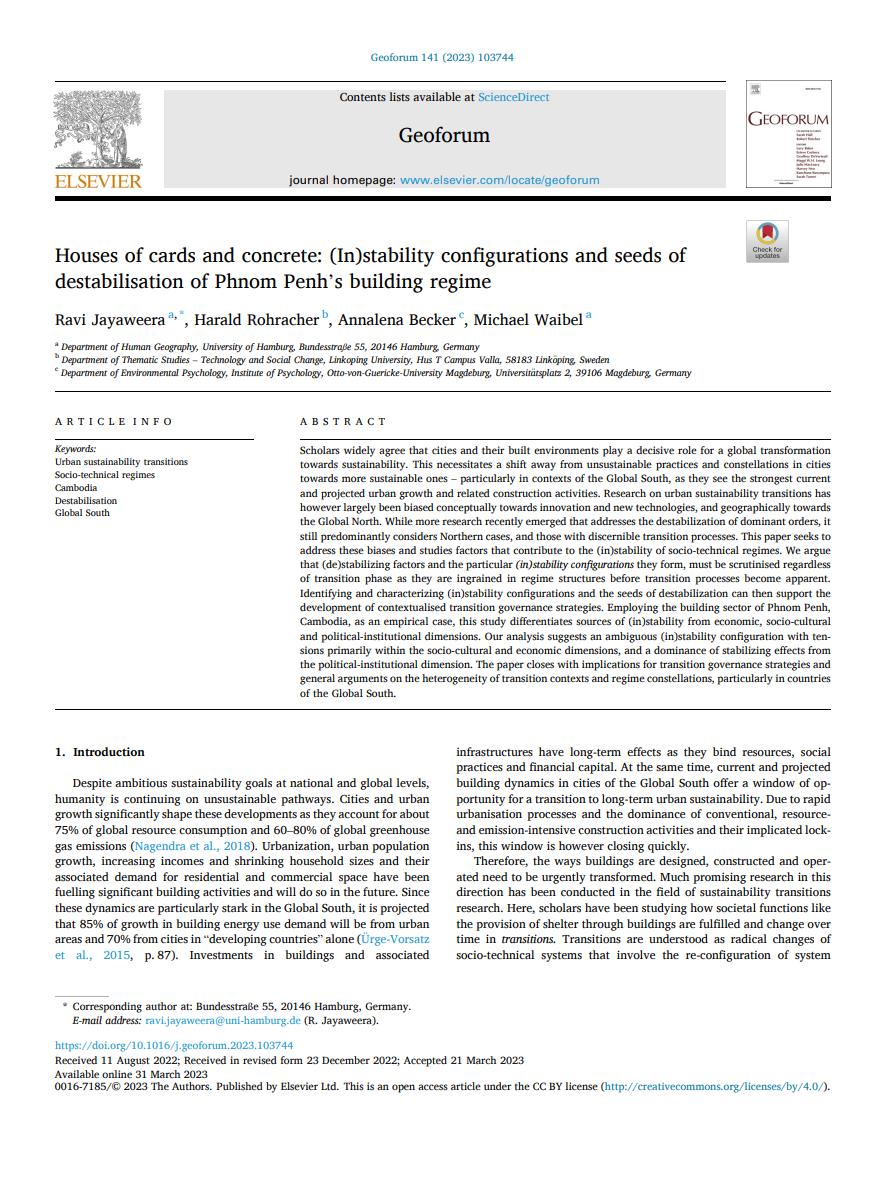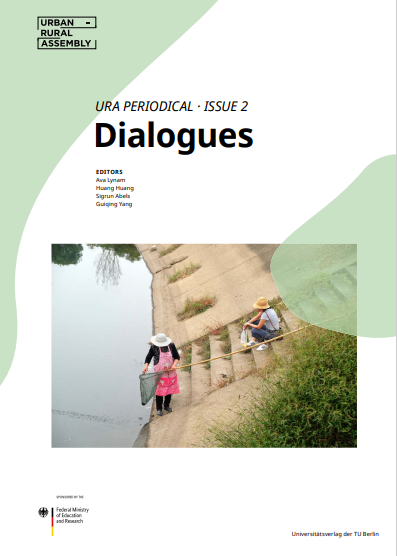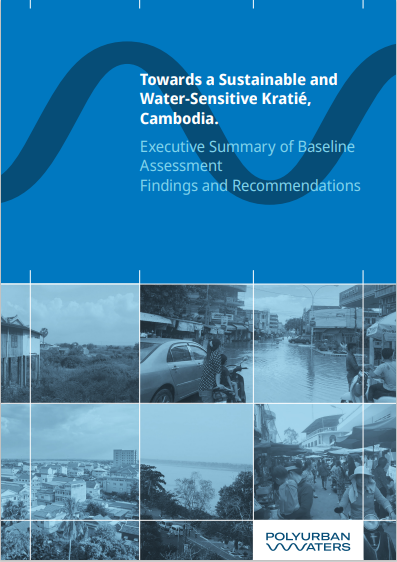Rapid urbanisation in the global south has often introduced substantial and rapid uncontrolled
Land Use and Land Cover (LULC) changes, considerably affecting the Land Surface
Temperature (LST) patterns. Understanding the relationship between LULC changes and LST is
essential to mitigate such effects, considering the urban heat island (UHI). This study aims to elucidate
the spatiotemporal variations and alterations of LST in urban areas compared to LULC changes.
The study focused on a peripheral urban area of Phnom Penh (Cambodia) undergoing rapid urban
development. Using Landsat images from 2000 to 2021, the analysis employed an exploratory
time-series analysis of LST. The study revealed a noticeable variability in LST (20 to 69 ◦C), which
was predominantly influenced by seasonal variability and LULC changes. The study also provided
insights into how LST varies within different LULC at the exact spatial locations. These changes
in LST did not manifest uniformly but displayed site-specific responses to LULC changes. This
study accounts for changing land surfaces’ complex physical energy interaction over time. The
methodology offers a replicable model for other similarly structured, rapidly urbanised regions
utilising novel semi-automatic processing of LST from Landsat images, potentially inspiring future
research in various urban planning and monitoring contexts.
Publikationen
Die Mitglieder des inter- und transdisziplinären Förderschwerpunkts »Nachhaltige Entwicklung urbaner Regionen« veröffentlichen ihre Forschungsergebnisse an den verschiedensten, für die jeweiligen Forschungen und Praxisanwendungen geeigneten Publikationsorten. Neben den eigenständigen Projektergebnissen gibt der Förderschwerpunkt verschiedene eigene Publikationsformate heraus, in denen die internationalen Wissenschaftlerinnen und Wissenschaftler von SURE publizieren.
Eine zeitlich geordnete Auswahl von SURE-bezogenen Veröffentlichungen finden Sie hier. Haben Sie Interesse an einer umfassenden Auflistung, freuen wir uns zudem über Ihren Besuch der individuellen Seiten der SURE-Verbundprojekte!





